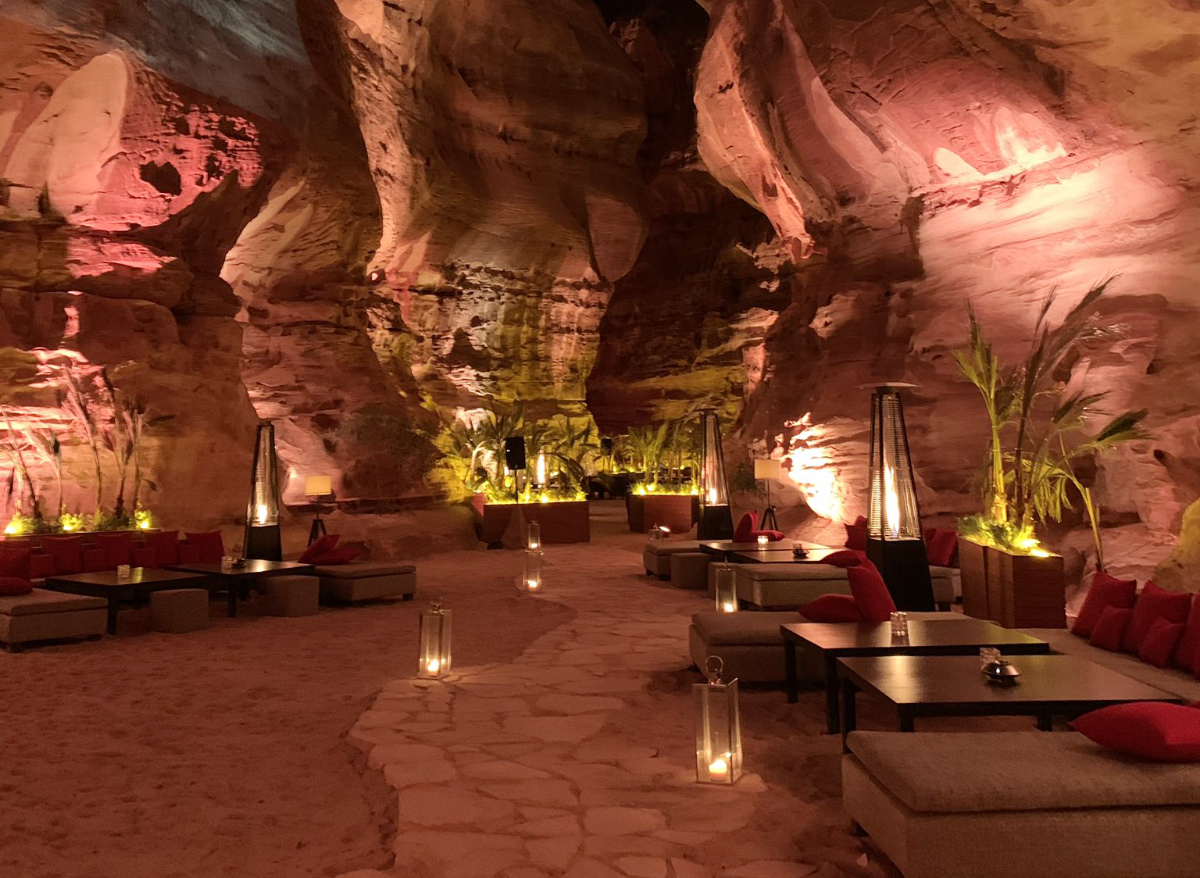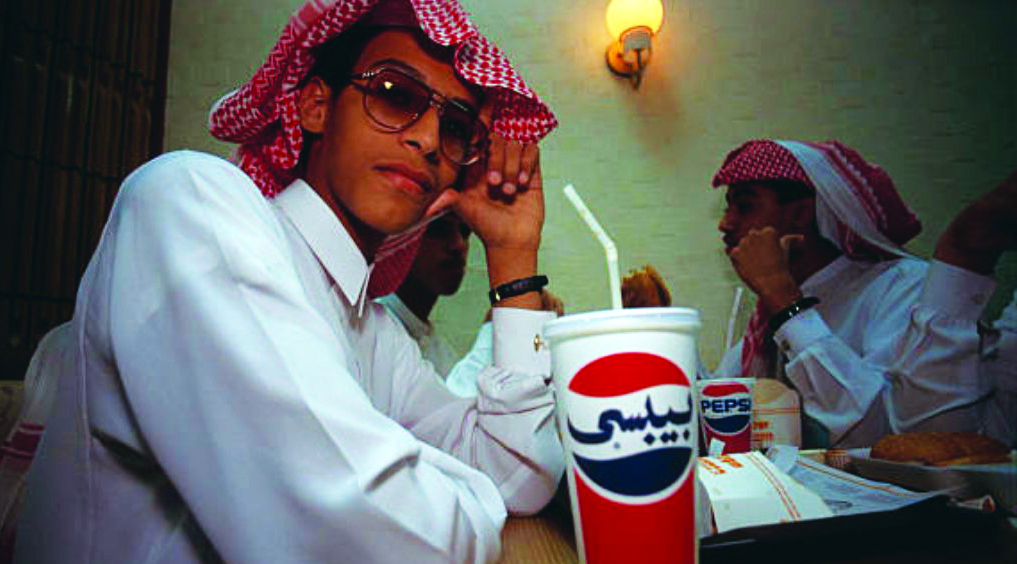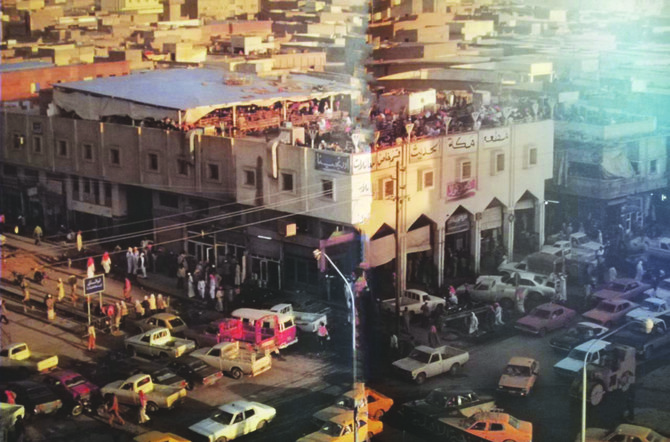RIYADH: The culture of imported foods and restaurants was limited until the early 1980s in Riyadh and most cities in Saudi Arabia.
However, the availability of sandwiches, shawarma, and hamburger meals has spread in large cities in the Kingdom such as Dammam, Riyadh and Jeddah since the mid-1980s.
Mansour Al-Assaf, an expert in social history, said on his Twitter account that the first shawarma restaurant in Riyadh was called Abu Nawas Restaurant on King Faisal Road. The first broasted (fried chicken) restaurant was KFC and there was a Wimpy restaurant in the same street in the 1960s.
Mixed falafel sandwich meals have been available in Riyadh in Al-Malaz neighborhood on Zaid bin Al-Khattab Street since 1982.
Al-Assaf told Arab News that restaurants had existed in Saudi Arabia since the 1950s, but widespread growth took place in the mid-1980s and 1990s.
“High-end restaurants were present in some cities in the 1950s, especially in the Eastern Province, Jeddah and perhaps even in Riyadh. Most of them were hotel restaurants such as Al-Yamamah Hotel, Zahrat Al-Sharq Hotel and Sahara Hotel in Riyadh,” he said.
“(Hatem Tayi) restaurant in Al-Bathaa district was one of the oldest restaurants in Riyadh in the 1960s. It used to serve kebabs, ribs and kofta — and not far from it people would meet in Omar Khayyam Cafe to watch free wrestling and discuss Ahmed Saeed’s speeches,” he said.
Muhammad Al-Harbi, a government retiree, spoke of when he was a college student at King Saud University in 1975. He said that he used to go with his friends to a restaurant serving a traditional Saudi dish called bukhari.
“It was a small restaurant near the college. As college students, we mainly cooked at home. We only went to this restaurant when we have extra money to spend.”
Al-Assaf said bukhari restaurants had existed since the 1960s but increased in 1987, after which floor-seating dining became popular in Saudi traditional restaurants.
HIGHLIGHTS
• The first broasted (fried chicken) restaurant was KFC and there was a Wimpy restaurant in the same street in the 1960s.
• Mixed falafel sandwich meals have been available in Riyadh in Al-Malaz neighborhood on Zaid bin Al-Khattab Street since 1982.
• The first Saudi restaurant to sell hamburgers was Herfy, which opened in 1981 under the Gulf Bridge on Khurais Street in Riyadh.
Most of the restaurants in the Kingdom were limited to male customers, Al-Harbi said. He only recalled one restaurant in a hotel called Zahrat Al-Sharq in Riyadh that had a family section.

A group of young men enjoying their fast food meal and Pepsi soft drink back in the 80s.
“Back in the old days, we rarely saw families in restaurants. The majority of those who went to restaurants were male workers and students.”
Al-Assaf said that family sections in restaurants existed in the 1960s and 1970s in Riyadh, Jeddah and many other regions in Saudi Arabia. He said that the majority of restaurants with family sections were limited to open buffets or hotel lobbies. Large international fast food restaurants and multinational chains in the 1980s and 1990s contributed to the growth of family sections.
“The first Saudi restaurant to sell hamburgers was Herfy, which opened in 1981 under the Gulf Bridge on Khurais Street in Riyadh.”
Herfy was one of the first Saudi fast-food restaurants that welcomed families.
Al-Assaf said that families in the 1980s began to accept the idea of going out to eat in a restaurant as family sections provided complete privacy for them.
“The economic boom also played a role in the spread of restaurants.”
Al-Harbi said that during his childhood in the 1960s, eating out was not an option as his parents would not allow it. “There used to be a sweets store in Madinah that served all kinds of cakes and tarts called Salah Bakery. My brothers and I used to look at the tarts from the window outside because we knew our mother wouldn’t allow us to eat them.”
During the 1990s, coffee shops began to appear and Saudi families became familiar with different types of Italian coffee, donuts, tiramisu and cinnamon rolls.
The food and beverage market witnessed considerable growth in Saudi Arabia after the launch Vision 2030.
With a population of more than 32 million, international and local companies are now competing to enter the market in this sector.
The entertainment industry and the increased number of sports events and concerts in the Kingdom also positively impacts the food sector. This growth already appears in increased mobile delivery applications, food trucks, and international and local restaurants in large cities such as Riyadh and Jeddah and small towns such as AlUla.
Saudi’s first UNESCO World Heritage site, AlUla, has a wide range of temporary food trucks, and several fine dining pop-up restaurants including Anabelle’s, Sass Café and La Cantine du Faubourg.
In previous years, the Kingdom has witnessed many developments in the food and beverage industry as international casual and fine dining options have entered the Riyadh market, including PF. Chang’s, Cipriani and Hakkasan. Michelin star-level restaurants are also opening across the Kingdom, such as Rasoi in Jeddah.
Coffee shops have proved popular, especially among millennials — such as Caoua, Jolt, and Dose in Riyadh. Famous local chefs are also opening their restaurants, such as chef Omar Al-Saif’s restaurant KRNSH.
Al-Harbi said that the younger generation were lucky to have so many restaurant options. “You have Italian, French, Japanese and Greek cuisines. Every day a new restaurant opens in the streets of Riyadh, and local Saudi restaurants have definitely outperformed big international ones.”




























